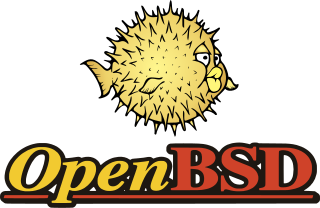
![]() A few days ago someone I know made the comment about needing to find another Operating System that is not Microsoft Windows. This shocked me in a way as I wouldn’t think this person would even consider using another System other than Windows. The core reason of making the change is to get away from and stopping to support a company that does not promote Conservatism, especially traditional Judeo-Christian values, or promote the Sanctity of Life.
A few days ago someone I know made the comment about needing to find another Operating System that is not Microsoft Windows. This shocked me in a way as I wouldn’t think this person would even consider using another System other than Windows. The core reason of making the change is to get away from and stopping to support a company that does not promote Conservatism, especially traditional Judeo-Christian values, or promote the Sanctity of Life.
I thought for a moment, then started on a quick discussion.
 I quickly mentioned that MacOS is a popular alternative to MS-Windows. However, its Company suffers from the same problem as that of Microsoft: the Company do not support conservatism nor the value and sanctity of life. And Apple has acted with hostility against Christians who may disagree with moral principles that are different than that of Apple. So MacOS is out.
I quickly mentioned that MacOS is a popular alternative to MS-Windows. However, its Company suffers from the same problem as that of Microsoft: the Company do not support conservatism nor the value and sanctity of life. And Apple has acted with hostility against Christians who may disagree with moral principles that are different than that of Apple. So MacOS is out.
ChromeOS and Chromebooks are the next option; however, the parent Company of this System, Google, has also acted with hostility against Christians and Conservatives that hold different beliefs than that of Google. So ChromeOS is out.
And that’s is the end of the line for “Consumer Operating Systems.” By “Consumer Operating System,” I mean Systems that are installed on the typical desktop or laptop that is purchased through the normal channels of popular retails stores like Walmart, Best Buy, Office Depot, etc. as well as through online channels such as Dell, Amazon, HP, Apple, etc..
 So next comes Linux. This is the logical next one for me as I’m a Computer Specialist by trade. So I am very familiar with Linux, and I have been using it since the late 1990s when I bought a copy of Slackware Linux. Linux is quite able to be used by most users. It has come a long way since the 1990s in regards to being user-friendly. It simply isn’t marketed as much to consumers like is done with Windows, MacOS, and ChromeOS. Linux suffers from the fact that there are many different versions (also called, ‘distributions’) of the software, that it can be difficult for an average user to choose a distribution.
So next comes Linux. This is the logical next one for me as I’m a Computer Specialist by trade. So I am very familiar with Linux, and I have been using it since the late 1990s when I bought a copy of Slackware Linux. Linux is quite able to be used by most users. It has come a long way since the 1990s in regards to being user-friendly. It simply isn’t marketed as much to consumers like is done with Windows, MacOS, and ChromeOS. Linux suffers from the fact that there are many different versions (also called, ‘distributions’) of the software, that it can be difficult for an average user to choose a distribution.
Linux Mint, Ubuntu, and Fedora are good Linux distributions from which to choose. However, currently the Linux community is going through a political storm. Microsoft, Google, and IBM are fighting to get an upper hand on Linux in order to control and profit from it. Furthermore, the Linux operating system is managed by a nonprofit entity of which many liberals are trying to gain control. The liberals are even try to push out Linus Torvalds, who is the creator of Linux, from the core Linux development team. So Linux may be out.
 Then there is the BSD Operating System. This is a competitor of Linux, and BSD is used by many big companies for service delivery. Netflix, Yahoo, and Sony's PS3 and PS4 are some of the better known Companies who use BSD. Like Linux, there are several distributions of BSD from which to choose. Luckily, the number of available distributions is significantly less than that of Linux. FreeBSD, OpenBSD, and GhostBSD are the more common and popular distributions. Similarly to Linux, liberally-minded individuals have also tried to politicize the BSD community. BSD is a very stable, very capable System, and to this day Netflix (also a liberal, anti-Christian company) uses BSD to deliver its video streaming service.
Then there is the BSD Operating System. This is a competitor of Linux, and BSD is used by many big companies for service delivery. Netflix, Yahoo, and Sony's PS3 and PS4 are some of the better known Companies who use BSD. Like Linux, there are several distributions of BSD from which to choose. Luckily, the number of available distributions is significantly less than that of Linux. FreeBSD, OpenBSD, and GhostBSD are the more common and popular distributions. Similarly to Linux, liberally-minded individuals have also tried to politicize the BSD community. BSD is a very stable, very capable System, and to this day Netflix (also a liberal, anti-Christian company) uses BSD to deliver its video streaming service.
![]() Two other Operating Systems I thought of were AmigaOS and HaikuOS. AmigaOS is an old operating system that has been around since the 1980s. And although it is old, this should not be a deterrent as IBM has systems that are even older. The AmigaOS has a lot of software, but its software is older. It has struggled since 1994 when its parent company, Commodore Business Machines, filed for bankruptcy and went out of business. The Amiga system is still in development, but it suffers, primarily for this discussion, from a lack of software that most people today take for granted. It also suffers from a very dis-unified community. Its current Operating Systems run only on out-dated PowerPC hardware that is no longer being produced or on expensive hardware that, after it is released, is beyond what average consumers typically pay. There is a version that runs on the Intel x86 processor; however, there is probably not enough software for a typical user to utilize on a daily basis.
Two other Operating Systems I thought of were AmigaOS and HaikuOS. AmigaOS is an old operating system that has been around since the 1980s. And although it is old, this should not be a deterrent as IBM has systems that are even older. The AmigaOS has a lot of software, but its software is older. It has struggled since 1994 when its parent company, Commodore Business Machines, filed for bankruptcy and went out of business. The Amiga system is still in development, but it suffers, primarily for this discussion, from a lack of software that most people today take for granted. It also suffers from a very dis-unified community. Its current Operating Systems run only on out-dated PowerPC hardware that is no longer being produced or on expensive hardware that, after it is released, is beyond what average consumers typically pay. There is a version that runs on the Intel x86 processor; however, there is probably not enough software for a typical user to utilize on a daily basis.
![]() HaikuOS is based upon a modernly designed Operating System from the early 2000s called BeOS. This System is great but lacks in software. It does; however, have enough software for typical usage such as a Word Processor, a Spreadsheet, and a Presentation program as part of the LibreOffice application suite. It does have web browser applications; however, they are not as advanced as on other platforms. At this time it does not appear to be caught in a political struggle or take-over by liberals and anti-Christians. Haiku runs on a limited range of Intel/AMD x86 hardware.
HaikuOS is based upon a modernly designed Operating System from the early 2000s called BeOS. This System is great but lacks in software. It does; however, have enough software for typical usage such as a Word Processor, a Spreadsheet, and a Presentation program as part of the LibreOffice application suite. It does have web browser applications; however, they are not as advanced as on other platforms. At this time it does not appear to be caught in a political struggle or take-over by liberals and anti-Christians. Haiku runs on a limited range of Intel/AMD x86 hardware.
Choosing an alternative System is, unfortunately, not an easy task. It may be just as well for a large group of Traditionalist to pick one of the alternative Systems and get involved with the management of the System so that the voice of Traditionalists is heard.
If you or your Company are interested in further investigating the alternatives, then please contact our computer partner. Ask for David. He can help you get started in investigating a potential fit for your situation.